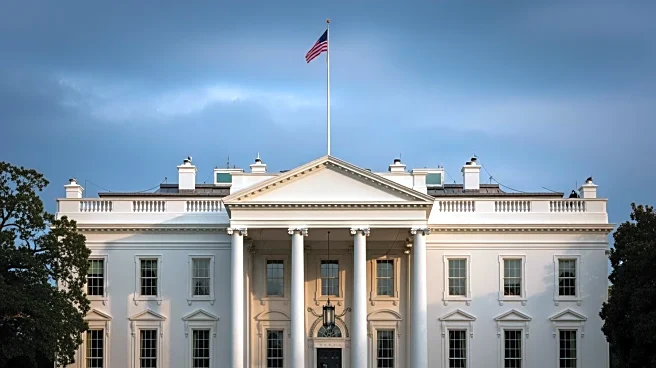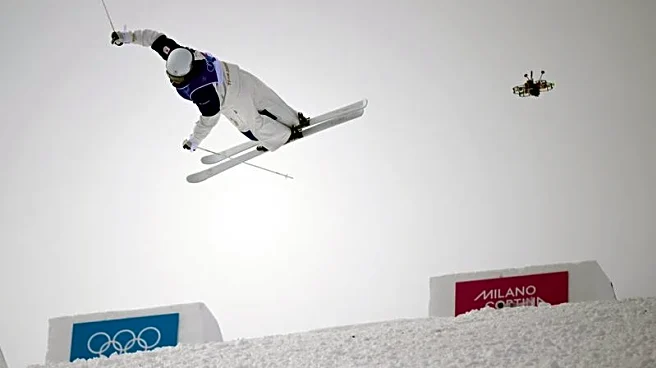What's Happening?
The White House has announced that there are no plans for President Donald Trump and Russian President Vladimir Putin to meet in the immediate future, canceling a summit that was expected to take place
in Hungary. This decision follows a phone call between U.S. Secretary of State Marco Rubio and Russian Foreign Minister Sergei Lavrov, which was deemed productive enough to negate the need for an in-person meeting. The Kremlin also downplayed the potential meeting, stating that no date had been set. President Trump, during an Oval Office event, expressed reluctance to engage in a meeting that might be unproductive, citing ongoing developments in the Russia-Ukraine conflict. Meanwhile, NATO Secretary-General Mark Rutte is scheduled to meet with Trump in Washington to discuss the situation in Ukraine.
Why It's Important?
The cancellation of the Trump-Putin meeting is significant as it reflects the ongoing complexities and diplomatic challenges in resolving the Russia-Ukraine conflict. The decision may impact U.S.-Russia relations and the broader geopolitical landscape, particularly as NATO continues to play a crucial role in supporting Ukraine. The absence of direct talks between Trump and Putin could delay potential resolutions or agreements that might have been reached through direct dialogue. Additionally, Ukraine's request for military support, including Tomahawk cruise missiles, remains a critical issue, with the U.S. administration's decision affecting Ukraine's military capabilities and strategic position.
What's Next?
NATO Secretary-General Mark Rutte's upcoming meeting with President Trump may provide further insights into NATO's stance and strategy regarding the Ukraine conflict. The Coalition of the Willing is set to meet in London, which could lead to new diplomatic initiatives or support measures for Ukraine. The evolving situation in Ukraine, including potential military aid and strategic decisions, will continue to be closely monitored by international stakeholders. The U.S. administration's approach to the conflict and its diplomatic engagements with Russia will likely influence future developments.
Beyond the Headlines
The cancellation of the Trump-Putin meeting highlights the intricate balance of diplomacy and military strategy in international relations. It underscores the challenges of negotiating peace amid ongoing conflict and the importance of multilateral discussions involving NATO and other international bodies. The situation also raises questions about the ethical implications of military aid and the long-term impact on regional stability and global security.










